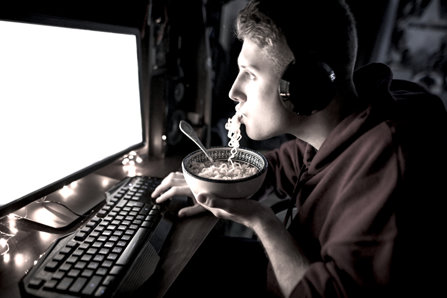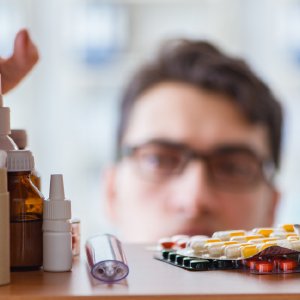Is Drug Abuse the Result of Bad Parenting or a Lack of Drug Education?

Wouldn’t it be incredible if a parent could look their child in the eye and know, just know, exactly what was going to become a problem for that child in the future?
Every parent wants to set their kids up for a successful and happy life just as much as they can.
If parents could predict what their kids will struggle with, parents would get an idea of how to address the first glimmers of those issues early on.
When it comes to addiction in a child’s youth, most parents of young addicts feel remorse that they did not do a better job as parents to turn their child away from the path that ultimately led them to addiction.
Most parents feel especially bad when they cannot convince their now-adult child to get help, feeling as though it was somehow their fault that their son or daughter went on to become an addict.
Signs That an Adolescent Might Be Edging towards Addiction
An article in the New York Times featured a groundbreaking anti-drug prevention program being used in parts of Europe, Australia, and Canada. The program is called Preventure.
The program talks about how harmless, drug-free, medication-free, and label-free personality testing and back and forth communication techniques can detect children who are at “high risk” for drug abuse with ninety percent accuracy.
The truth is, the majority of teenagers who try alcohol, cocaine, opioids, methamphetamine, cannabis, etc. do not become addicted to these substances. So what’s different about the minority who do become addicted? What may or may not have been going on in this group’s youth that could have given us an insight into their drug addiction future had we known what to look for?
Traits That Might Push a Youth to Drug Use
The Preventure program indicates that there are four “precursors” or traits to look out for in childhood and adolescence that can set the stage for drug use later on. These traits are:
- A tendency for sensation seeking
- Impulsiveness
- Anxiety sensitivity
- Hopelessness.
A first glance that list might be a little discouraging, as probably every parent in America can find one of those traits in their kids. But to what extent? How often does it manifest? And how intense does it get?
Let’s look at each one.

Sensation seeking. People who are drawn to intense experiences are more likely to use drugs than people who are not. These so-called “adrenaline junkies” binge on other sensation-inducing activities such as long hours of video gaming, eating processed, fatty, and sugary foods to excess, engaging in promiscuous activities, etc.
All of these activities can manifest themselves in one’s youth, and while certainly not every teen who seeks intense sensation will turn to drug use, some of them certainly do.
Impulsiveness. Impulsiveness is a tricky one. Just about all kids display impulsive behavior from time to time. But true impulsiveness denotes an uncontrollable aspect to it.
Kids can get energetic and excited certainly, and they can act on impulse absolutely, but chronic, ongoing impulsiveness is a bit more specific. When a child or teen is being extremely impulsive in an area to the point where that impulsive action becomes harmful for them, that could lead to impulsivity in drug use later on.
Anxiety sensitivity. Anxiety sensitivity is a specific phenomenon. It means being overly aware and frightened by the physical signs of anxiety. It’s a sort of panic—a hyper-anxiety. Extreme anxiety can lead one to make poor choices such as, “I have to take this drug to make this extreme anxiety go away.” Anxiety can start at a very young age and then lead to drug use as a coping mechanism later on in life.
Hopelessness. Hopelessness is a precursor to depression. When a child or adolescent displays hopelessness, this is a red flag. Occasional sadness is not unusual, but no child should feel chronic hopelessness.
Medication is not the answer, as the side effects from that are often worse than the problem itself is. Rather, try to find the source of the child’s hopelessness, and help them work
through it.




 ®
®